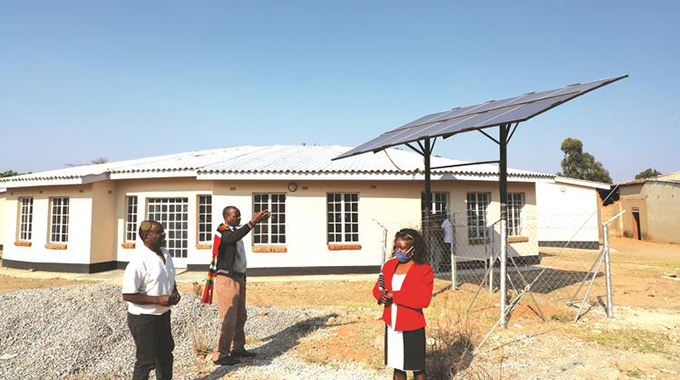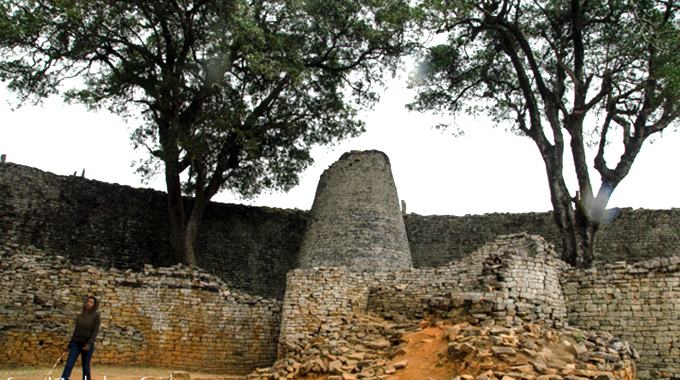Model school changes fortunes in Rusape

Rumbidzayi Zinyuke
Manicaland Bureau
Noway Revai Ngorima of Rusape’s road to attaining education was bumpy, for he had to walk more than 13 kilometres to school for six years of his primary education.
But in 2003, the establishment of a new satellite school closer to his home meant that he and his friends had to move from Yorkshire Primary School. Suddenly, Noway did not have to get to school tired that he couldn’t concentrate.
But then, the school they were now going to, although with a fancy name — Lawrencedale Primary School, was not like any other school they had seen before.
“Gone were the normal classrooms, the chairs and desks and black boards where teachers would write down work for us,” says Noway. “Instead, we now had tobacco barns for classrooms, we had to sit on the dusty floor to write our work and endure the cold dark and smelly new environment.”
Lawrencedale Primary School was one of the three satellite schools for Yorkshire, established to cater for the children in the resettlement areas near Rusape.
Since the school did not have any other infrastructure, but the barns, both the teachers and the learners had some adjusting to do.
Sadly, Noway did not adjust well.
He says he performed dismally during his Grade 7 exams because the environment he suddenly found himself in was not what he would have wished.
But thanks to the focus by the New Dispensation, Lawrencedale has been transformed into a state-of-the-art school, with all the modern facilities which might probably be the best in Manicaland province.
The New Dispensation led by President Mnangagwa ushered in the construction of new schools as part of initiatives under the Transitional Stabilisation Programme.
Lawrencedale became one of the two schools to be built in Manicaland, with US$21 million funding from the OPEC Fund for International Development (OFID).
A total of 17 primary and secondary schools across the country are being constructed under this initiative, while Government seeks funding for more schools. From having class in barns, Lawrencedale has become the model type of school facilities that Zimbabwe can offer. Construction of the school began in 2017 and was completed in 2019.
This year, the learners began using their new classrooms, albeit only for a few months before the school calendar was disturbed by the Covid-19 pandemic.
The school now boasts four classroom blocks, a state-of-the-art infant learning centre, an administration block, a computer lab and a library. It is equipped with a solar water pump which has made potable water available for both the school and the community.
School authorities are waiting for a bulk metre to be installed so that they can start accessing electricity.
Not only did the community get a school, villagers were contracted to work during the construction process.
When they were resettled in 2000, the community realised the need for a school closer because children had to walk very long distances.
According to the Community Development Committee chairman Mr Tonderai Madumira, they had come up with a list of priority projects and the school was on top of the list.
“When we identified the school as a priority project, we formed an education committee which was responsible for making sure that we got a school here,” he said. “They engaged all the relevant authorities until we got approval for the school.”
For two years, they moved from one office to the next, making applications, filling out forms, talking to relevant people to make their wish a possibility. In 2002, they finally succeed.
The Ministry of Lands, Agriculture, Water and Rural Resettlement authorised the use of the tobacco barns as classrooms and the Ministry of Education approved the establishment of the school.
The journey thus began.
The first classes came into the school that year. But since the barns were not ideal for classes, the community once again requested to modify them so that they could bring the roofs lower and put in windows to allow for better ventilation. This was done, but the floors were still dusty and children would use cow dung to cover the floors to make them less dusty.
And they still did not have furniture.
The first teachers who were deployed to the school found the going tough.
Mrs Abigail Mashumba, who is now the teacher-in-charge said morale was very low when she joined the school in 2004.
“I remember we would bring wraps to protect our clothes because we sometimes had to kneel to be able to communicate with the children who had no desks or chairs,” she said. “You would come into the school clean and leave dirty.
“We used bricks as learning boards and this was tough. The barns also had no locks, so we would sometimes find goats inside the classroom the next morning.
“For the children, the cold atmosphere in the barns meant that they would not be able to concentrate until much later in the day when it was warm, so time was lost. On our part as teachers, most of us were commuting from Rusape to work every day and this was both expensive and not good for us. Motivation was very low.”
But when the proper school was built, all that changed.
Mrs Mashumba said the teachers were now happy to come to work and the majority now stayed at the school.
“With the children learning in a good environment, we are able to focus on teaching and improving the quality of education being offered here,” said Mrs Mashumba.
Makoni District Schools Inspector Mr Nathaniel Machini said the school had been registered in 2019 as a standard school and now has an enrolment of 491 learners and 14 teachers.
“All the fittings have been done, but we still need to put in more furniture and computers in the lab,” he said. “External works that are still outstanding include landscaping, fencing and the grounds and that is in the pipeline.
“With the school now complete, we believe it had tremendously improved the quality of education that learners receive and the teachers are also now more comfortable. Such a facility in a rural set up will definitely motivate teachers.”
School Development Committee chairman Mr Peter Kampila said although the completion of the school had taken long, it had been worth the wait.
“We are thankful to the Government for taking the initiative to make the vision we had for this school become reality,” he said. “Lawrencedale could be the best school in Manicaland and we are very happy with what is here now.
“Government is promoting ICT and we are happy that our children will also keep up with their peers in line with the new curriculum once the computer lab is equipped and we have electricity connected.”
This year’s Grade 7 class will be the last to write the final Zimsec examination under Yorkshire Primary School.
Gogo Getrude Dzikiti, who was part of the committee that advocated for the school, says she is happy that she managed to leave a legacy for her grandchildren.









Comments